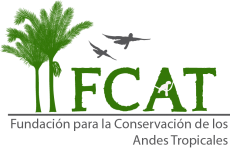April 2013
A good month for student research! Sam, Luke, and Mitch all presented posters at the annual Tulane SSE Research Day poster session. Luke also received funding from the Explorer’s Club, the Stone Center for Latin American Studies at Tulane, the Tinker Foundation, and the American Ornithologist’s Union for his upcoming field season in Ecuador. He presented work in collaboration with Kym Ottewell and Jordan Karubian on the genetic and demographic consequences of forest fragmentation in Ecuador forOenocarpus bataua as part of Tulane’s Ecolunch seminar series.
Jenny’s paper ‘Reproductive Biology of the Yungas Manakin (Chiroxiphia boliviana) in Manu National Park, Peru’ was published in Ornitologia Neotropical.
Read MoreFebruary 2013
Scott’s manuscript ‘Hurricane, Habitat Degredation, And Land Loss Effects On Brown Pelican Nesting Colonies’ has been accepted to the Journal of Coastal Research. Furthermore, Scott has submitted the full grant proposal to National Geographic requesting funds to continue our GPS tracking work with Brown Pelicans in Alabama and Louisiana. This work seeks to gain an understanding of pelican foraging behaviors within the context of hypoxia-induced shifts in the distribution of the pelican’s dominant prey, the Gulf Menhaden.
Jordan was appointed to the Kylene and Brad Beers Professorship in Social Entrepreneurship. This appointment recognizes his commitment to blending community engagement with scholarship. Furthermore, Jordan and his family have recently arrived in Brazil, where they will spend several months of this Third Year Leave in the city of Florianopolis.
Finally, we’ll have two new PhD students in the lab this fall. Erik Enbody plans to conduct his dissertation research on the behavioral ecology of the White-shouldered Fairy-wren in Papua New Guinea. And, Brock Geary will focus his research on Gulf of Mexico Waterbirds. Welcome to them both!
Otherwise, we all enjoyed another Mardi Gras!
Read MoreJanuary 2013
Scott presented the talk ‘Brown Pelican Foraging and Nesting in Relation to the Deepwater Horizon Oil Spill’ at the Gulf of Mexico Oil Spill and Ecosystem Science Conference in New Orleans, LA. Furthermore, Scott submitted the manuscript ‘Hurricane, Habitat Degradation, and Land Loss Effects on Brown Pelican Nesting Colonies’ to theJournal of Coastal Research.
On the international front, Sam has recently returned from three weeks collecting red-backed fairy wren data during the wet season in Australia.
Read MoreDecember 2012
Jordan and Luke visited the Chocó rainforests in Ecuador to field test techniques to radio track palm seeds, and also hold an Environmental Fair in La Y de la Laguna that was attended by > 400 local residents. Jordan also recently received a grant from the LA Board of Regents P-FUND program for work on white-shouldered fairy-wrens in Papau New Guinea. As for Sam, she is soon off for Australia to continue her doctoral research on red-backed fairy-wrens. Finally, congratulations to Jenny for advancing to PhD candidacy! Happy holidays, everyone.
Read MoreNovember 2012
Scott T. Walter’s manuscript ‘Brown pelican colony initiation attempts: Translocations and decoys’ was accepted for publication by the journal Waterbirds. Also, his manuscript ‘Hurricane, habitat degradation, and land loss effects on brown pelican nesting colonies’ was submitted to the journal Bird Conservation International. Finally, his grant pre-proposal ‘Effects of hypoxia on brown pelican foraging ecology and demographic processes’ submitted to National Geographic was accepted!
The article in The American Naturalist – ‘Use of Alpha, Beta, and Gamma Diversity Measures to Characterize Seed Dispersal by Animals’ by Douglas Scofield, Peter Smouse, Jordan Karubian, and Victoria Sork is now available online!
Read More


